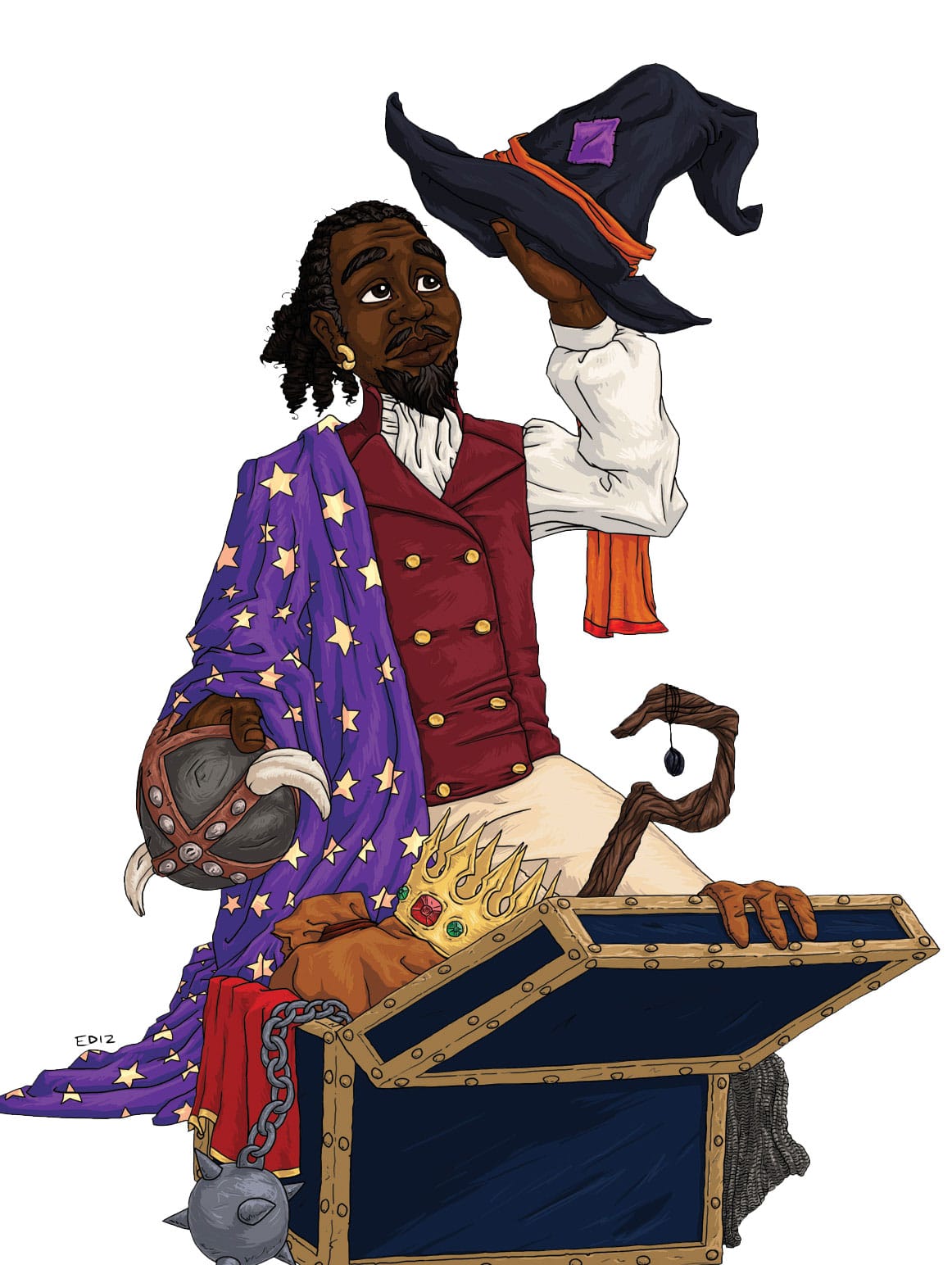Searching Locations in Dungeon World 2

On Tuesday, Spencer revealed a couple of our new Exploration Moves, including Have a Moment and Navigate Peril. Today I get to reveal and talk to you about our last two Exploration Moves!
So, the first move I’ll just put right here and then talk about. Here’s Scout Ahead!
Scout Ahead
When you stealthily explore a dangerous area alone, roll+Slippery. On a 7+, you make it back safely. On a 10+, choose two from below. On a 7-9, only one:
- Inspire (or worry) your allies and gain 1 Kinship
- Learn about a danger, secret, treasure, or opportunity
- Acquire something interesting or useful
On a 6-, you still choose one, but then the GM will say what happens.
This move represents a complementary approach to Skulk (previewed here) when the PCs decide that it's better to leave it all up to the sneakiest in the group—or at least someone who wants to risk it! It’s a classic in fantasy fiction and adventure, and we expect it to get a lot of use in exploratory situations in a group that has a classically-built Rogue or just a particularly Slippery (and brave) PC.
Whereas Skulk is specifically about moving past or hiding from a danger/obstacle, Scout Ahead allows us to summarize an excursion that may take much longer to describe and/or develop with just a single move that also puts the focus on what we think matters most in these cases: obtaining something, acquiring valuable intel, and/or just reinforcing the bounds of friendship and camaraderie that join the group together.
Another important difference between Scout Ahead and Skulk Ahead is how the first is about preparation and gathering info about a situation, while the second can lead to resolving it. If you want to sneak into a bandit camp to poison the food and murder the leader, that's probably Skulk (probably followed by Pull Off a Trick from the Rogue Class—if they’re a Rogue, that is). If you want to know where they hide their loot and then sneak back to the group, that's Scout Ahead.
Our remaining Exploration Move is perhaps the most important of them all, as it deals with the actual moment of revelation, when a new element enters the fiction and/or the conversation. The difficulty/balancing act here comes from one of the core PbtA maxims: play to find out. You probably already know what this means but, in case you don't, play to find out refers, in short, to the idea that you're uncovering in the moment some aspects of the fiction through the back and forth of conversation. This makes it so, effectively, nobody at the table knows with total certainty—not even the GM!—what's going to happen next.
This pillar is, however, at odds with having meaningful discoveries that fit the current fiction or narrative. Sometimes, there’s simply “nothing to see here”, as they say, but if the player triggers the move, you never want to just say “no”. In addition to this, even if there’s something to reveal, there’s a problem of knowing how to frame the reveal. How does this new information change the fiction? Finally, as a GM there are opportunities where you don’t know what to reveal specifically, so there needs to be guidance about that too.
Without further ado, here’s our proposed solution to this complex conundrum: Unearth Secrets!
Unearth Secrets
When you thoroughly search a notable location for something hidden, ask the GM, “Are there secrets to be found here?”. If they say “yes”, roll+Astute. If the location has an obstacle or danger you may first need to overcome them before finding its secrets. No matter what, you always find something; the GM will tell you what it is (door, path, treasure, friend, enemy, lair, dungeon, etc.). On a 10+, your discovery is clear and significant. On a 7-9, choose one:
- Your discovery puts you at immediate risk; the GM will say how (an enemy ambushes you, a hidden trap activates, the floor falls out beneath your feet, etc.)
- Your discovery is a clue to something significant, but not anything significant by itself. Add 1 Kinship to the pool.
- Your discovery, or the process of finding it, makes you mark a condition.
On a 6-, the GM will turn your discovery back on you, and you may wish you hadn’t unearthed it.
As you can tell, this move tries to address all the difficulties we mentioned above. As such, it’s a lengthy move! However, we feel that this version nails our vision for this momentous moment in the fiction. You get to say “no” as a GM if there’s really nothing to reveal (or you can’t think of anything at the moment), if there is something there you have the chance to advance the fiction in many ways depending on the result of the move, and we hope that all the choices on the 7-9 are interesting, as you need to “pay” for the discovery with a condition if you want it without any strings attached.
As you can see, we included a caveat that, if the GM says there's something to be found, you always find it no matter what the result of the dice. This is so because, from our perspective, "not finding the secret" basically never happens in fantasy fiction (or fiction in general), and in D&D dungeon-crawling situations an undiscovered secret door is only interesting to the GM, not the rest of the players.
So that’s all for Exploration Moves in the Alpha Playtest so far! Next week we’ll delve deeper into The Group Playbook and what it entails (beyond what we’ve already previewed), starting with Spencer’s post on Tuesday.
Until then, happy gaming!
Helena
